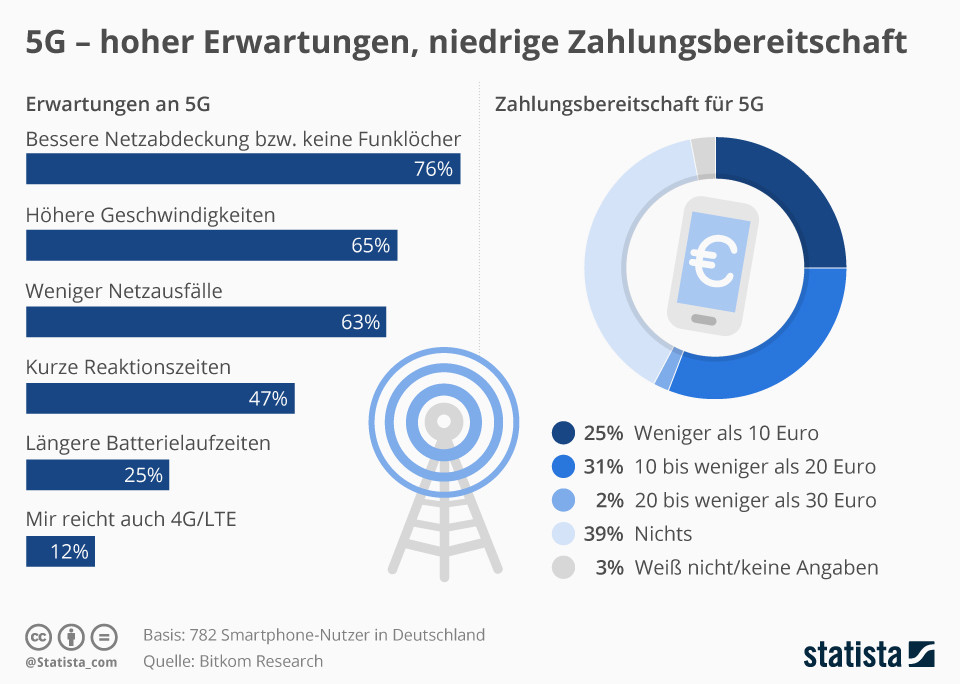Since yesterday, Drillisch Netz AG, Telefónica, Telekom and Vodafone have been able to submit bids for frequencies in the 2 GHz and 3.4 GHz to 3.7 GHz ranges. These are to be used for the upcoming 5G mobile communications generation. Taken together, Germany will earn at least 104.6 million euros for the 41 frequency blocks. According to Bitkom Research, Germans expect better network coverage, higher speeds and fewer network failures from 5G. However, the smartphone users surveyed are unlikely to want to pay more for an improved network. 39 percent say that they would not pay anything extra per month for a 5G mobile phone contract, while another 25 percent would find less than ten euros extra acceptable.
Since yesterday, Drillisch Netz AG, Telefónica, Telekom, and Vodafone have been able to submit bids for frequencies in the 2 GHz and 3.4 GHz to 3.7 GHz ranges. These bids are to be used for the upcoming 5G generation of mobile phones. Taken together, Germany will receive at least EUR 104.6 million for the 41 frequency blocks. According to Bitkom Research, Germans expect better network coverage, higher speeds and fewer network failures from 5G. However, smartphone users surveyed do not want to pay more for an improved network. 39 percent say that they would not pay anything extra for a 5G mobile phone contract every month, another 25 percent would find less than ten euros extra acceptable.
Germany only in 28th place for mobile broadband
There are currently 81.1 mobile broadband connections for every 100 inhabitants in this country. This puts Germany in 28th place in an OECD comparison. Japan is the leader with 168.2 mobile broadband connections per 100 inhabitants - around 43 percent of which are pure data connections. Of course, this says nothing about network speed and quality. But Germany probably still has some catching up to do in this respect, as a graphic from August 2018 shows. Not to mention the 240 dead spots throughout Germany.
Currently, there are 81.1 mobile broadband connections per 100 inhabitants in Germany. This puts Germany in 28th place in an OECD comparison. The leader is Japan with 168.2 mobile broadband connections per 100 inhabitants – of which around 43 percent are pure data connections. Of course, this says nothing about network speed and quality. But in this respect, too, Germany should continue to have some catching up to do, as a chart from August 2018 shows. Not to mention the 240 radio holes in the whole of Germany.


